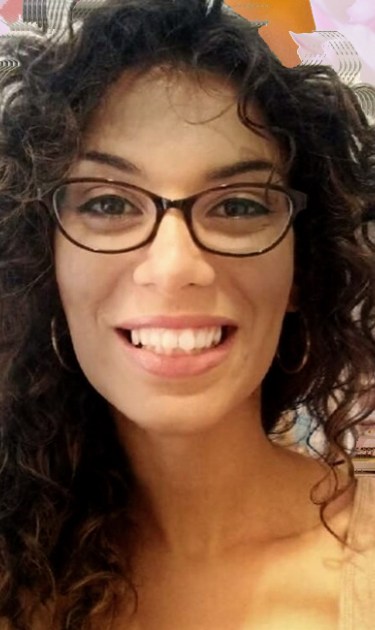Despite the increased media representation of transgender people and issues over the years, this community hardly sees stories that fairly or accurately represent it. Just in the last 20 years, cis actors Hilary Swank (Boys Don’t Cry), Eddie Redmayne (The Danish Girl), and Jared Leto (Dallas Buyers Club) have won Oscars for roles that should have gone to trans actors. And while the tide is changing – Laverne Cox (Orange Is the New Black) and Elliot Fletcher (Shameless, The Fosters) – cis actors still largely portray trans characters. All of this works to shut out the voices of so many trans people, which is why friends Joanna Cifredo and Rebecca Kling started the Trans Specific Partnership, a podcast where they could own their tales through nuanced analysis. TSP covers gender and sexuality through discussions on politics and pop culture.
The podcast, which launched in May, presents informative and amusing discussions on trans issues. Cifredo and Kling have covered topics like dysphoria (the feeling that your body does not reflect your gender) and pretty privilege. Episodes on discriminatory health care policy and ambivalence toward street harassment are on the way. While both trans activists discuss these issues through a feminist lens, their wildly different experiences have shaped their perspectives. On TSP, both their viewpoints are central to the stories they’re telling.
Kling, 32, grew up in a middle-class Jewish family in Chicago. Cifredo, 30, is from a working-poor Puerto Rican community in Orlando, Florida. Both women acknowledge how their class, race and ethnic identities impact their lives as trans women today. For instance, in their second episode, “What Do You Want to Be When You Grow Up,” Kling, who has an affirming and supportive family, remembers always envisioning college and a career in her future. Cifredo, whose parents didn’t have the resources to provide her with the same financial assistance, says she didn’t make goals past earning enough cash to afford costly gender confirmation surgery. As a result, Kling attended an institution of higher education and Cifredo taught herself most of the skills she uses in her life and career.
“In the US, we tell stories, including trans ones, in a very dichotomous way that erases nuance.”
“We’re both trans women but have very different experiences and approaches to our transness based on our backgrounds,” Cifredo, who now lives in Washington, DC, tells me.
For her, TSP is essential because it’s one of the few spaces where listeners can hear multidimensional trans experiences, and not just from the hosts. Cifredo and Kling will soon introduce an interview segment, where they plan to raise the voices and stories of trans people of color, trans immigrants, trans men, trans elders, nonbinary people, and parents of trans children.
“In the US, we tell stories, including trans ones, in a very dichotomous way that erases nuance, that erases the experiences of Latinas, Natives, Asian-Pacific Islanders, and other marginalized communities. We want to elevate those stories and voices,” Cifredo says.
She has already ensured that the intersection of Latinidad and transness is present in the podcast. In episode 1, for instance, the puertorriqueña explained how even though younger generations in the US consider the word “transsexual” antiquated, those in Latin America and some Latinxs in the US prefer that term to “transgender.”
In episode 2, Cifredo briefly talked about the ways machismo, particularly anti-femme bullying, as well as poverty further complicated her transition as a Latina from the hood. These issues, she notes, may be common knowledge among trans Latinxs, but not for the podcast’s general audience.
“I’m just trying to be authentic and find my voice through the podcast,” she says. “In my work, I often focus a little more on my trans identity, because that’s a reflection of my own agency, but my Latina identity came before my transness. I always knew I was poor and Latina. I knew I went to the bad schools; I knew there was no safe space for me. I always knew this country was not made for me. Everything else has built off of that. My transness is linked to my Latina identity. I can’t separate the two.”
“My transness is linked to my Latina identity. I can’t separate the two.”
Cifredo’s also determined to use TSP to spotlight the violence and barriers trans Latinas experience in the US and their home countries. According to a 2013 study by the TransLatin@ Coalition, 61 percent of trans Latina immigrants came to the US fleeing physical, social, psychological, or economic violence in their home countries. The same study found that in the United States, 49 percent of respondents were unemployed, 65 percent lacked health insurance, and 75 percent lived with depression. Even more alarming, as many as 70 percent knew a trans Latina who had been murdered.
“Mainstream media doesn’t discuss the many ways trans Latinas are oppressed in this country,” Cifredo says. “It’s rarely discussed that we are at higher risk of being detained and then assaulted while in immigration detention centers, and it’s rarely discussed the violence we are facing here and in the countries some of us escaped.”
She and Kling use their podcast to fill the media’s void. Their voices are especially crucial at a time when the current administration is infringing on the rights of the trans community. But it’s important to note that they’re not just covering trans issues. As Kling says, the duo is “part of a larger movement, where trans people can speak on both trans issues and topics that aren’t only related to trans identity.” Together, they tackle the heaviest political matters and lightest pop culture news, all with the perfect blend of seriousness and humor you can expect of any feminist homegirls.
Catch a new episode of the Trans Specific Partnership on SoundCloud and iTunes every 1st and 15th of the month.




